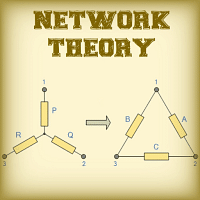Electrical Engineering (EE) Exam > Electrical Engineering (EE) Questions > How can I use the section-wise weightage to p...
Start Learning for Free
How can I use the section-wise weightage to prioritize my revision and practice during the last few weeks before the GATE EE exam?
Most Upvoted Answer
How can I use the section-wise weightage to prioritize my revision and...
Understanding the Section-Wise Weightage
The first step in prioritizing your revision and practice for the GATE EE exam is to understand the section-wise weightage. The weightage refers to the percentage of marks allocated to each section in the exam. By knowing this information, you can allocate your time and efforts accordingly to maximize your score potential.
Identifying the Sections and Their Weightage
- Section 1: Engineering Mathematics
Weightage: 15%
- Section 2: General Aptitude
Weightage: 15%
- Section 3: Electrical Circuits and Fields
Weightage: 13%
- Section 4: Signals and Systems
Weightage: 10%
- Section 5: Electrical Machines
Weightage: 15%
- Section 6: Power Systems
Weightage: 15%
- Section 7: Control Systems
Weightage: 10%
- Section 8: Electrical and Electronic Measurements
Weightage: 10%
Prioritizing Revision and Practice
1. Begin with High-Weightage Sections
Start your revision with the sections that have the highest weightage. This will ensure that you cover the most important topics and allocate sufficient time to master them.
2. Allocate Time Proportionate to Weightage
Distribute your time for revision and practice proportionate to the weightage of each section. For example, if a section has a weightage of 15%, allocate 15% of your total study time to that section.
3. Identify Your Weak Areas
After an initial round of revision, identify your weak areas within each section. Focus more on these topics during subsequent revisions to strengthen your understanding and improve your performance in those areas.
4. Practice Previous Year Question Papers
Solve previous year question papers to familiarize yourself with the exam pattern and gain insights into the type of questions asked. Allocate specific time for practicing these papers and analyze your performance to identify areas that need further improvement.
5. Mock Tests and Time Management
Take regular mock tests to assess your preparation level and improve your time management skills. Simulate the exam environment as closely as possible to get accustomed to the time constraints and pressure.
6. Revision Strategy
Devise a revision strategy that suits your learning style. Some options include revisiting topics in a cyclical manner, creating summary notes, or explaining concepts to others. Experiment with different methods to find what works best for you.
7. Seek Clarification
If you encounter any doubts or concepts that are unclear during your revision, seek clarification from reliable sources such as textbooks, online resources, or discussion forums. Clearing your doubts will ensure a solid understanding of the topics.
8. Stay Calm and Confident
Lastly, stay calm and maintain confidence in your preparation. Avoid excessive stress and take breaks to rejuvenate your mind. Positive thinking and self-belief can go a long way in achieving success in the exam.
Remember, consistent effort, effective time management, and a targeted approach towards high-weightage sections will greatly enhance your chances of scoring well in the GATE EE exam. Good luck!
The first step in prioritizing your revision and practice for the GATE EE exam is to understand the section-wise weightage. The weightage refers to the percentage of marks allocated to each section in the exam. By knowing this information, you can allocate your time and efforts accordingly to maximize your score potential.
Identifying the Sections and Their Weightage
- Section 1: Engineering Mathematics
Weightage: 15%
- Section 2: General Aptitude
Weightage: 15%
- Section 3: Electrical Circuits and Fields
Weightage: 13%
- Section 4: Signals and Systems
Weightage: 10%
- Section 5: Electrical Machines
Weightage: 15%
- Section 6: Power Systems
Weightage: 15%
- Section 7: Control Systems
Weightage: 10%
- Section 8: Electrical and Electronic Measurements
Weightage: 10%
Prioritizing Revision and Practice
1. Begin with High-Weightage Sections
Start your revision with the sections that have the highest weightage. This will ensure that you cover the most important topics and allocate sufficient time to master them.
2. Allocate Time Proportionate to Weightage
Distribute your time for revision and practice proportionate to the weightage of each section. For example, if a section has a weightage of 15%, allocate 15% of your total study time to that section.
3. Identify Your Weak Areas
After an initial round of revision, identify your weak areas within each section. Focus more on these topics during subsequent revisions to strengthen your understanding and improve your performance in those areas.
4. Practice Previous Year Question Papers
Solve previous year question papers to familiarize yourself with the exam pattern and gain insights into the type of questions asked. Allocate specific time for practicing these papers and analyze your performance to identify areas that need further improvement.
5. Mock Tests and Time Management
Take regular mock tests to assess your preparation level and improve your time management skills. Simulate the exam environment as closely as possible to get accustomed to the time constraints and pressure.
6. Revision Strategy
Devise a revision strategy that suits your learning style. Some options include revisiting topics in a cyclical manner, creating summary notes, or explaining concepts to others. Experiment with different methods to find what works best for you.
7. Seek Clarification
If you encounter any doubts or concepts that are unclear during your revision, seek clarification from reliable sources such as textbooks, online resources, or discussion forums. Clearing your doubts will ensure a solid understanding of the topics.
8. Stay Calm and Confident
Lastly, stay calm and maintain confidence in your preparation. Avoid excessive stress and take breaks to rejuvenate your mind. Positive thinking and self-belief can go a long way in achieving success in the exam.
Remember, consistent effort, effective time management, and a targeted approach towards high-weightage sections will greatly enhance your chances of scoring well in the GATE EE exam. Good luck!
Attention Electrical Engineering (EE) Students!
To make sure you are not studying endlessly, EduRev has designed Electrical Engineering (EE) study material, with Structured Courses, Videos, & Test Series. Plus get personalized analysis, doubt solving and improvement plans to achieve a great score in Electrical Engineering (EE).

|
Explore Courses for Electrical Engineering (EE) exam
|

|
How can I use the section-wise weightage to prioritize my revision and practice during the last few weeks before the GATE EE exam?
Question Description
How can I use the section-wise weightage to prioritize my revision and practice during the last few weeks before the GATE EE exam? for Electrical Engineering (EE) 2024 is part of Electrical Engineering (EE) preparation. The Question and answers have been prepared according to the Electrical Engineering (EE) exam syllabus. Information about How can I use the section-wise weightage to prioritize my revision and practice during the last few weeks before the GATE EE exam? covers all topics & solutions for Electrical Engineering (EE) 2024 Exam. Find important definitions, questions, meanings, examples, exercises and tests below for How can I use the section-wise weightage to prioritize my revision and practice during the last few weeks before the GATE EE exam?.
How can I use the section-wise weightage to prioritize my revision and practice during the last few weeks before the GATE EE exam? for Electrical Engineering (EE) 2024 is part of Electrical Engineering (EE) preparation. The Question and answers have been prepared according to the Electrical Engineering (EE) exam syllabus. Information about How can I use the section-wise weightage to prioritize my revision and practice during the last few weeks before the GATE EE exam? covers all topics & solutions for Electrical Engineering (EE) 2024 Exam. Find important definitions, questions, meanings, examples, exercises and tests below for How can I use the section-wise weightage to prioritize my revision and practice during the last few weeks before the GATE EE exam?.
Solutions for How can I use the section-wise weightage to prioritize my revision and practice during the last few weeks before the GATE EE exam? in English & in Hindi are available as part of our courses for Electrical Engineering (EE).
Download more important topics, notes, lectures and mock test series for Electrical Engineering (EE) Exam by signing up for free.
Here you can find the meaning of How can I use the section-wise weightage to prioritize my revision and practice during the last few weeks before the GATE EE exam? defined & explained in the simplest way possible. Besides giving the explanation of
How can I use the section-wise weightage to prioritize my revision and practice during the last few weeks before the GATE EE exam?, a detailed solution for How can I use the section-wise weightage to prioritize my revision and practice during the last few weeks before the GATE EE exam? has been provided alongside types of How can I use the section-wise weightage to prioritize my revision and practice during the last few weeks before the GATE EE exam? theory, EduRev gives you an
ample number of questions to practice How can I use the section-wise weightage to prioritize my revision and practice during the last few weeks before the GATE EE exam? tests, examples and also practice Electrical Engineering (EE) tests.

|
Explore Courses for Electrical Engineering (EE) exam
|

|
Suggested Free Tests
Signup for Free!
Signup to see your scores go up within 7 days! Learn & Practice with 1000+ FREE Notes, Videos & Tests.























